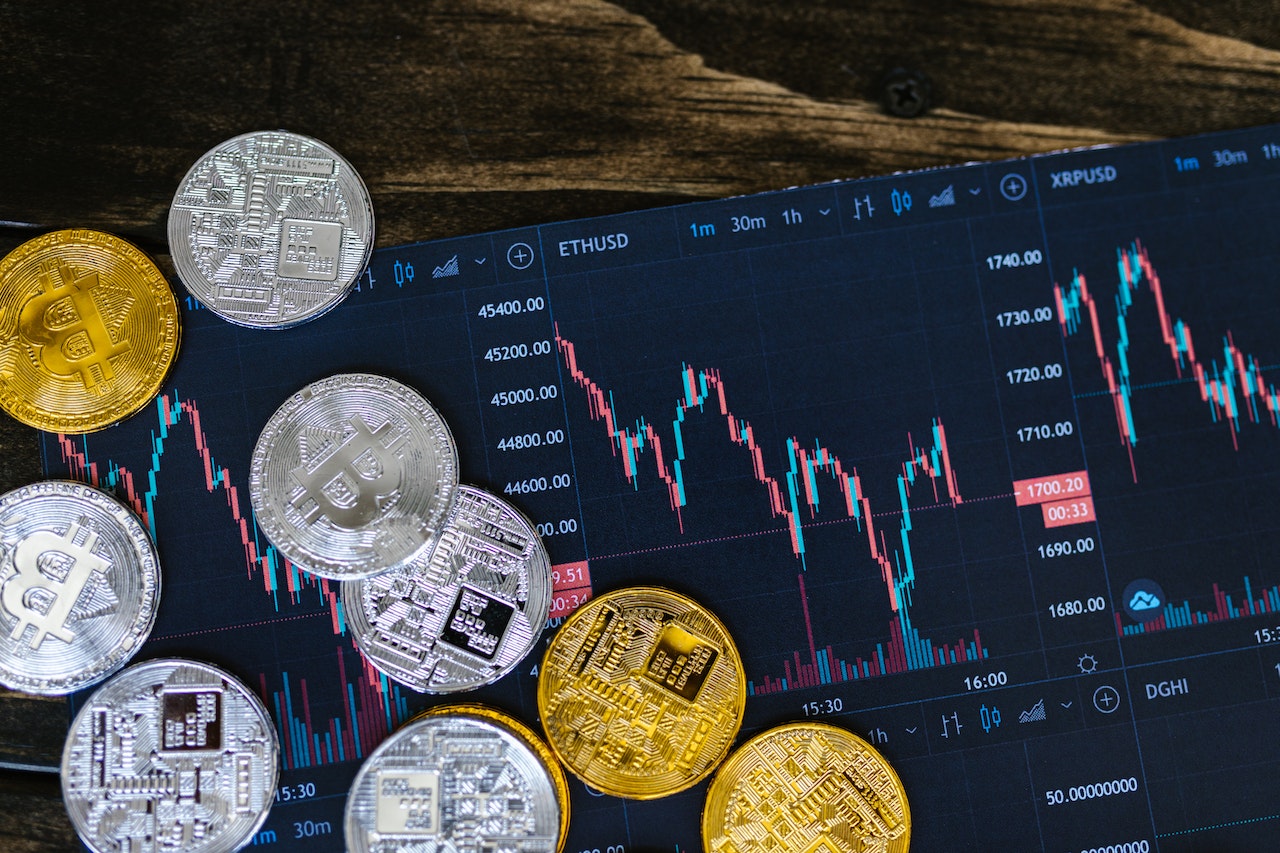Business
If the SEC Is “Killing Crypto,” Why’s It Not Killing KoreChain?
With the SEC now aggressively cracking down on crypto, crypto pundits are accusing it of “killing crypto in America.” But not everyone agrees. KoreChain founder Oscar Jofre, sees the SEC as playing a central role in future crypto innovation. However, the key to Jofre’s approach is seeing “the other side of crypto,” which, until now, has largely remained outside of the public consciousness.

While big names like Chamath Palihapitiya are attacking aggressive regulators for “killing crypto in America,” others, like KoreChain founder Oscar Jofre, see agencies like the SEC as playing a central role in future crypto innovation.
Even before the infamous FTX collapse last year, the popular sentiment in many circles was that crypto was on its last legs. And since then, that sentiment has only spread. In an interview cited by CNN last month, famed tech investor and Bitcoin bull Chamath Palihapitiya didn’t even have a shred of optimism left over from his former crypto-optimist days. “Crypto is dead in America,” he said.
However, as popular as the crypto is dead opinion may be, that doesn’t mean it’s the correct opinion. In fact, once we start scratching the surface a little, we may even see that it’s just dead wrong.
The SEC and The Future of Crypto — Oscar Jofre vs Chamath Palihapitiya
To be fair to Palihapitiya, we should highlight that his comments about the death of crypto weren’t meant to be universal. Rather, they were made in the context of crypto in America.
Specifically, Palihapitiya notes that increasingly aggressive regulators are what will kill investment and innovation in crypto in America. As one example of regulator aggression, Palihapitiya cites the case of SEC Chairman, Gary Gensler, blaming crypto for the collapse of Silicon Valley Bank and the ensuing banking crisis.
Palihapitiya is not alone here either. In a recent House Financial Services Committee hearing, Republican chairman, Rep. Patrick McHenry, told Gensler in no uncertain terms that the SEC “approach is driving innovation overseas and endangering American competitiveness.”
With that said, for all the hate being piled on the SEC and other regulatory agencies, not everyone agrees. In fact, others, like KoreConX and KoreChain founder, Oscar Jofre, see agencies like the SEC as a cornerstone of future innovation.
Can the SEC and Blockchain Ever Get Along? KoreChain Says Yes
Jofre acknowledges that things have indeed come to a screeching halt on one side of the crypto world. However, Jofre is also adamant that, there is another side to the crypto world beyond the unregulated markets, speculative bubbles, and misappropriated funds that have come to characterize crypto in the popular mind.
This other side that Jofre is referring to is “using blockchain technology for issuing security tokens and tokenization of real-world assets.” Interestingly, despite the currently flat “crypto market,” this latter use case is still experiencing increasing adoption.
The important thing to note here is that Jofre is not talking about NFTs, per se, when he speaks about the tokenization of assets. At least, not in the digital-trading-card-type-collectibles sense that we’ve all come to know.
Rather, Jofre is specifically referring to the use of blockchain technology in real-world, SEC-regulated private equity markets. This is the motivation behind his creation of the first SEC-Quallified blockchain for companies raising capital, KoreChain.
The pitch for KoreChain is simple. To bring trust to private equity markets. However, as simple as the pitch may be, the goals of KoreChain are lofty, with the company aiming to create a full “permissioned blockchain ecosystem for fully-compliant issuance, trading, clearing, settlement, management, reporting, corporate actions, and custodianship for tokenized securities worldwide.”
Where Does KoreChain Fit In?
While KoreChain may have set itself some lofty goals in creating its blockchain, it’s not setting out to take over the NYC, Nasdaq, or any other major exchange. While many of KoreChain’s major features mirror what is already offered, or at least coordinated, by large exchanges (clearing, trading, etc.), that’s not where KoreChain thinks it can add the most value.
Instead, KoreChain’s primary focus will be on introducing its services to equity crowdfunding which, despite relatively cool equity markets elsewhere, is still experiencing phenomenal growth. For example, just last month, RegCF and RegA offerings saw a 119% monthly growth.
With growth in crowdfunding like this, the need for solutions like KoreChain here is clear. Currently, these markets are hindered by three main pain points that KoreChain identifies — inefficient tools, fragmented processes, and high costs.
Thrown into the inefficiency of it all, we also find the old ‘accredited’ vs ‘civilian’ investor divide. Traditional private equity investors — accredited investors, the so-called one-percenters — can come into deals armed with lawyers and a level of sophistication that the average ‘civilian’ investor is unlikely to have. Furthermore, their access to liquidity is something the average investor is unlikely to have.
Efficiency, Trust, and the KoreChain Blockchain
Solving the efficiency and trust pain points that current equity crowdfunding investors and issuers currently face are a major use case for blockchain technology. And, paradoxically, if KoreChain’s SEC-qualified status is anything to go by, the SEC seems to agree, too.
A reason for this is that KoreChain goes well beyond standard blockchain offerings. It is not just an “immutable ledger” as a stand-in for a database. Nor is it just another trading platform that performs a little KYC in an attempt to wipe its hands clean.
Instead, KoreChain is a ground-up solution that centralizes all aspects of equity markets, from initial offering to facilitating liquidity for private investors and does so in a fully-compliant way. Further, its implementation of blockchain technology brings additional transparency to this end of the private equity market that, until now, quite simply didn’t exist.
The SEC Can Get On Board With Infrastructure, not Speculation
Effectively, what we see KoreChain setting out to create is more than just another speculative asset class which, if we’re honest, is what most crypto “innovation” has been about until now.
Rather, the entire KoreChain solution, once spelled out, is better thought of as a blockchain-as-infrastructure solution that harnesses cutting-edge technology to improve things like regulatory compliance, share issuance, and other essential aspects of any offering.
When we see this side of the coin, it’s not hard to imagine why the SEC might be so amenable to it while simultaneously being so hostile to “crypto.” The simple reality is that there is a lot more to crypto than speculative sh*tcoins, mass-produced NFTs, and outright scams. And, if KoreChain is onto something, then crypto could very well be on track to a very healthy life in America.
—
(Featured image by RDNE Stock project via Pexels)
DISCLAIMER: This article was written by a third party contributor and does not reflect the opinion of Born2Invest, its management, staff or its associates. Please review our disclaimer for more information.
This article may include forward-looking statements. These forward-looking statements generally are identified by the words “believe,” “project,” “estimate,” “become,” “plan,” “will,” and similar expressions. These forward-looking statements involve known and unknown risks as well as uncertainties, including those discussed in the following cautionary statements and elsewhere in this article and on this site. Although the Company may believe that its expectations are based on reasonable assumptions, the actual results that the Company may achieve may differ materially from any forward-looking statements, which reflect the opinions of the management of the Company only as of the date hereof. Additionally, please make sure to read these important disclosures.

-

 Business1 week ago
Business1 week agoDow Jones Near Record Highs Amid Bullish Momentum and Bearish Long-Term Fears
-

 Business2 weeks ago
Business2 weeks agoDow Jones Breaks 50,000 as Bull Market Surges Amid Caution and Volatility
-

 Crowdfunding5 days ago
Crowdfunding5 days agoThe Youth Program at Enzian Shooting Club Is Expanding Thanks to Crowdfunding
-

 Impact Investing2 weeks ago
Impact Investing2 weeks agoEU Backs 90% Emissions Cut by 2040 and Delays ETS2 Rollout

























